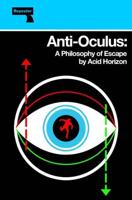Publisher's Synopsis
Schopenhauer (1788-1860) was a German philosopher, best known for his 1818 work The World as Will and Representation (expanded in 1844) wherein he characterizes the phenomenal world as the product of a blind and insatiable metaphysical will. Proceeding from the transcendental idealism of Kant, Schopenhauer developed an atheistic metaphysical and ethical system that has been described as an exemplary manifestation of philosophical pessimism, rejecting the contemporaneous post-Kantian philosophies of German idealism. He was among the first thinkers in Western philosophy to share and affirm significant tenets of Eastern philosophy (eg, asceticism), having initially arrived at similar conclusions as a result of his own philosophical work. Though his work failed to garner substantial attention in his lifetime, he has had a posthumous impact across various disciplines, including philosophy, literature, and science. His writing on aesthetics, morality, and psychology has influenced thinkers and artists up to the present day. The essays contained in The Art of Literature were originally included in Parerga and Paralipomena (Greek for 'Appendices' and 'Omissions' respectively) published in 1851, a collection of philosophical reflections compiled as augmentary readings for those who had already embraced Schopenhauer's philosophy. Reprinted from the English translation by Thomas Bailey Saunders (1860-1928) in his The Essays of Schopenhauer series (1889-96), widely acknowledged as the best English translations of Schopenhauer's works.












